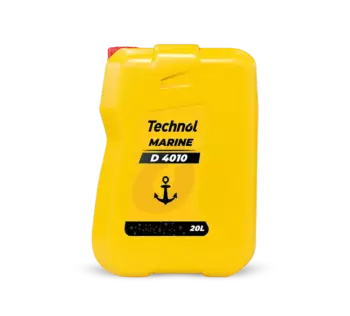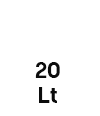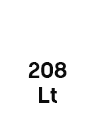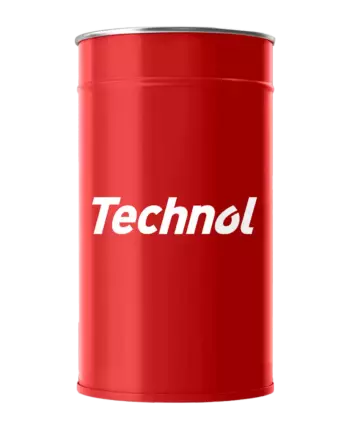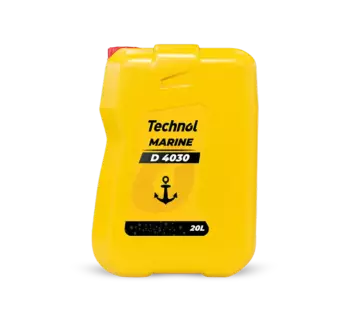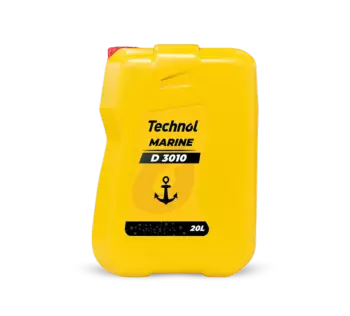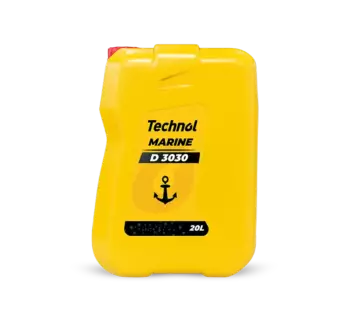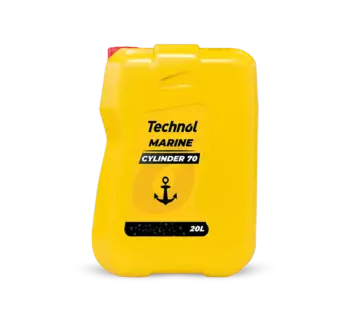Marine Oil
Marine Oils – Power and Protection at Sea and in Water Transport
The marine environment is one of the toughest and harshest conditions in the world. Ship engines and marine equipment are constantly exposed to the corrosive effects of salt water, high pressure, varying temperatures, and heavy-duty operation. For this reason, marine oils are specially formulated not only to protect engines but also to ensure long-term reliable performance.
Marine oils do more than just provide lubrication – they also offer anti-corrosion protection, energy efficiency, thermal stability, and fuel savings.
Types and Functions of Marine Oils
Oils designed for marine transport vary depending on their functions. Each type has unique characteristics:
Engine Oils
Special formulas for diesel and gasoline engines
Stability at high temperatures
Anti-corrosion protection in salty environments
Cost savings with extended drain intervals
Gear and Transmission Oils
Extreme Pressure (EP) additives resistant to heavy loads
Reduce friction, extending equipment lifespan
Prevent shaft and gear damage
Hydraulic Oils
Essential for cranes, winches, and other onboard equipment
Prevent foaming
Stable operation in both hot and cold conditions
Anti-Corrosion and Rust Protection Oils
Form a protective layer that shields metal parts from rust
Long-term durability in offshore and marine environments
Prevent wear damage caused by friction in mechanical parts
Key Advantages of Marine Oils
The main differences and advantages of marine oils compared to regular oils are:
High Pressure Resistance
Engines and mechanisms are constantly subjected to heavy loads. EP additives protect equipment even under extreme pressure.
Corrosion Protection
The salty marine environment is the biggest threat to equipment. Marine oils are enriched with special anti-corrosive additives, minimizing rust and wear.
Thermal Stability
Weather fluctuations can affect oil quality. Marine oils remain effective in temperatures ranging from -30°C to +100°C.
Extended Drain Intervals
While conventional engine oils require frequent changes, marine oils are designed for long-term operation. This reduces maintenance costs and ensures operational reliability.
Application in Industries
Maritime Industry
Widely used in Baku Port and other seaports
Play a vital role in oil tankers, cargo vessels, and passenger ships
Oil and Gas Platforms
Used for engines, generators, and offshore equipment
Ensure long-term operation without frequent maintenance
Fishing and Small Marine Transport
Protect engines in fishing vessels
Provide long-lasting stability in small boats and private yachts
Technol Marine Oils – International Quality, Local Trust
Technol Marine Oils are premium-quality products that meet the demands of both local and international markets.
Key Features
Compliance with international ISO and API standards
Advanced formulas resistant to corrosion and high pressure
Low-sulfur, environmentally safe additives
Energy-saving and fuel-efficient performance
Why Choose Technol Marine Oils?
Trusted brand in the Azerbaijani market
Certified international quality
Wide range of products at competitive prices
Long-term engine protection and cost-effective operation
Choosing the Right Marine Oil
Factors to consider when purchasing marine oil:
Type of ship engine and manufacturer’s recommendations
Duration and conditions of marine operation
Compliance with international certifications
Impact on operational costs
Marine oils are indispensable for the long-lasting and stable performance of marine engines, gear systems, and other equipment. In countries like Azerbaijan, where marine transport and the oil industry are highly active, choosing the right oil is strategically important.
Technol Marine Oils maintain their leading position in the market by offering internationally certified quality along with flexible solutions tailored to local needs.
Frequently Asked Questions
What is the difference between marine oils and regular engine oils?
Marine oils are specially formulated to withstand saltwater, high pressure, and extreme temperature variations, unlike conventional engine oils.
How often should marine oils be changed?
Depending on the type of engine and operating conditions, the oil change interval for marine oils is typically between 500–1000 hours.
Do Technol marine oils have international certification?
Yes, Technol marine oils fully comply with ISO and API standards.
Are marine oils only intended for large vessels?
No, they are used not only in large tankers but also in small yachts, boats, and fishing vessels.
Do marine oils affect fuel consumption?
Yes, high-quality marine oils reduce friction, which improves fuel efficiency.
Showing all 8 results
Marine Oils – Power and Protection at Sea and in Water Transport
The marine environment is one of the toughest and harshest conditions in the world. Ship engines and marine equipment are constantly exposed to the corrosive effects of salt water, high pressure, varying temperatures, and heavy-duty operation. For this reason, marine oils are specially formulated not only to protect engines but also to ensure long-term reliable performance.
Marine oils do more than just provide lubrication – they also offer anti-corrosion protection, energy efficiency, thermal stability, and fuel savings.
Types and Functions of Marine Oils
Oils designed for marine transport vary depending on their functions. Each type has unique characteristics:
Engine Oils
Special formulas for diesel and gasoline engines
Stability at high temperatures
Anti-corrosion protection in salty environments
Cost savings with extended drain intervals
Gear and Transmission Oils
Extreme Pressure (EP) additives resistant to heavy loads
Reduce friction, extending equipment lifespan
Prevent shaft and gear damage
Hydraulic Oils
Essential for cranes, winches, and other onboard equipment
Prevent foaming
Stable operation in both hot and cold conditions
Anti-Corrosion and Rust Protection Oils
Form a protective layer that shields metal parts from rust
Long-term durability in offshore and marine environments
Prevent wear damage caused by friction in mechanical parts
Key Advantages of Marine Oils
The main differences and advantages of marine oils compared to regular oils are:
High Pressure Resistance
Engines and mechanisms are constantly subjected to heavy loads. EP additives protect equipment even under extreme pressure.
Corrosion Protection
The salty marine environment is the biggest threat to equipment. Marine oils are enriched with special anti-corrosive additives, minimizing rust and wear.
Thermal Stability
Weather fluctuations can affect oil quality. Marine oils remain effective in temperatures ranging from -30°C to +100°C.
Extended Drain Intervals
While conventional engine oils require frequent changes, marine oils are designed for long-term operation. This reduces maintenance costs and ensures operational reliability.
Application in Industries
Maritime Industry
Widely used in Baku Port and other seaports
Play a vital role in oil tankers, cargo vessels, and passenger ships
Oil and Gas Platforms
Used for engines, generators, and offshore equipment
Ensure long-term operation without frequent maintenance
Fishing and Small Marine Transport
Protect engines in fishing vessels
Provide long-lasting stability in small boats and private yachts
Technol Marine Oils – International Quality, Local Trust
Technol Marine Oils are premium-quality products that meet the demands of both local and international markets.
Key Features
Compliance with international ISO and API standards
Advanced formulas resistant to corrosion and high pressure
Low-sulfur, environmentally safe additives
Energy-saving and fuel-efficient performance
Why Choose Technol Marine Oils?
Trusted brand in the Azerbaijani market
Certified international quality
Wide range of products at competitive prices
Long-term engine protection and cost-effective operation
Choosing the Right Marine Oil
Factors to consider when purchasing marine oil:
Type of ship engine and manufacturer’s recommendations
Duration and conditions of marine operation
Compliance with international certifications
Impact on operational costs
Marine oils are indispensable for the long-lasting and stable performance of marine engines, gear systems, and other equipment. In countries like Azerbaijan, where marine transport and the oil industry are highly active, choosing the right oil is strategically important.
Technol Marine Oils maintain their leading position in the market by offering internationally certified quality along with flexible solutions tailored to local needs.
Frequently Asked Questions
What is the difference between marine oils and regular engine oils?
Marine oils are specially formulated to withstand saltwater, high pressure, and extreme temperature variations, unlike conventional engine oils.
How often should marine oils be changed?
Depending on the type of engine and operating conditions, the oil change interval for marine oils is typically between 500–1000 hours.
Do Technol marine oils have international certification?
Yes, Technol marine oils fully comply with ISO and API standards.
Are marine oils only intended for large vessels?
No, they are used not only in large tankers but also in small yachts, boats, and fishing vessels.
Do marine oils affect fuel consumption?
Yes, high-quality marine oils reduce friction, which improves fuel efficiency.


